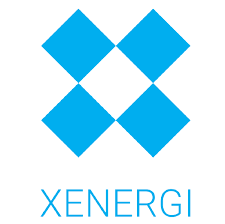A land dispute has erupted in the Oluji area of Delta State, Nigeria, involving energy companies Xenergi and Axxela, and the local Umuseti community. The core issue revolves around land ownership and accusations of encroachment, with each party presenting conflicting narratives. Axxela, which recently acquired land in the area, alleges that Xenergi is attempting to disrupt its operations and monopolize the gas supply in the region. Xenergi vehemently denies these allegations, asserting its commitment to peaceful coexistence with its host communities and adherence to legal land acquisition processes. The dispute highlights the complexities of land ownership and resource development in Nigeria, particularly in the context of the country’s burgeoning gas industry.
The controversy began with a statement attributed to a spokesperson of the Umuseti Community, claiming that the land in question rightfully belongs to them and was purchased by Axxela. The statement also alluded to a previous incident in 2014 where Xenergi allegedly attempted to claim ownership of land in the area. This historical context adds another layer of complexity to the current dispute, suggesting a potential pattern of land-related conflicts involving Xenergi. The community’s assertion of ownership challenges the narrative presented by Xenergi, raising questions about the validity of Axxela’s land acquisition and the extent of community involvement in the process.
Xenergi, in its response, firmly refuted any claims of encroachment or community disruption. According to Xenergi’s spokesperson, Emmanuel Akpe, the land belongs to the Umu-Mgbor family of Umuseti, who have historically used it for agricultural and economic activities. Akpe further alleges that the protests against Axxela’s operations, purportedly led by Emu Ebendo, are orchestrated by Xenergi as part of a strategy to monopolize the regional gas supply. This counter-accusation frames the dispute as a commercial rivalry, with Xenergi portrayed as using local communities as pawns in a “trade war.” This narrative shifts the focus from land ownership to market competition, raising questions about the underlying motivations of the involved parties.
Xenergi’s management issued a formal statement categorically denying Axxela’s allegations and emphasizing its commitment to peaceful and lawful operations. The company highlighted its history of positive relationships with host communities, attributing its operational success to meticulously structured public-private partnerships and collaborative community arrangements. Xenergi underscored its adherence to legal and regulatory frameworks in land acquisition, emphasizing the full participation and consent of key stakeholders. This portrayal of Xenergi as a responsible corporate citizen contrasts sharply with the image presented by Axxela, further muddying the waters of the dispute.
Xenergi advocated for dialogue and legal channels as the appropriate means of resolving the dispute, calling on relevant authorities and stakeholders to intervene and restore peace and stability. The company emphasized its commitment to the government’s “Decade of Gas” program and its dedication to sustainable development and community empowerment. This appeal to higher authorities and broader national goals positions Xenergi as a responsible actor seeking a peaceful resolution within the existing legal and regulatory framework. It also subtly underscores the importance of the gas industry to Nigeria’s development, suggesting that the dispute could have broader implications for the sector.
In its concluding remarks, Xenergi urged all parties to cease disruptive actions and create a conducive environment for resolution. The company reiterated its commitment to sustainable, transparent, and fair principles and its belief that the future of Delta State depends on these values. This call for de-escalation and focus on shared interests aims to portray Xenergi as a constructive force seeking a mutually beneficial outcome. The emphasis on transparency and fairness implicitly challenges the actions of other parties involved, suggesting that they may not be upholding these principles. The dispute ultimately highlights the challenges of balancing economic development with community rights and environmental protection, a complex equation facing many resource-rich regions around the world.














